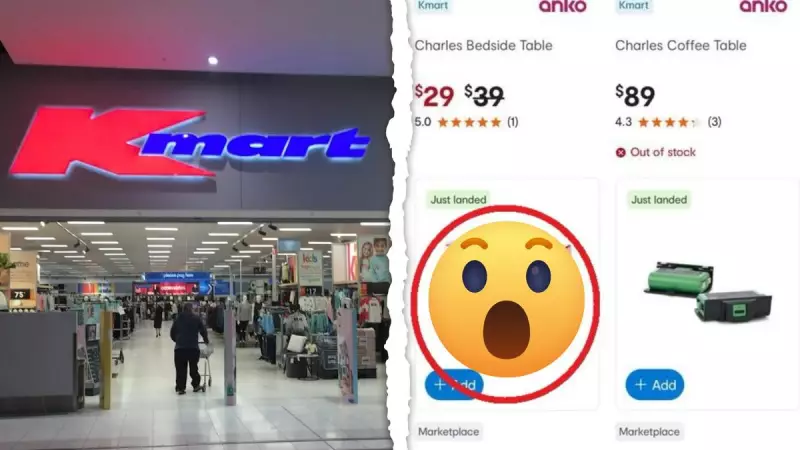
A controversial product listing on Kmart's online Marketplace has ignited a firestorm of criticism from Australian shoppers, raising serious questions about the accessibility of substances often misused for recreational purposes.
Social Media Sounds the Alarm
The uproar began when a vigilant social media user spotted Cream Charger Bulbs for Whipped Cream Dispensers for sale by a third-party vendor on Kmart's website. These small, 8-gram bulbs contain nitrous oxide, a gas legally used in commercial kitchens for creating whipped cream but also notoriously abused for its euphoric effects, earning it the street names 'laughing gas' or 'nangs'.
The discovery was quickly shared within a large Facebook group boasting 220,000 members. The original poster expressed deep concern, suggesting that "someone from Kmart’s PR team needs a tip off." This sentiment was overwhelmingly echoed by other Australians who flooded the post with comments of outrage and disbelief.
"This is so freakin’ sad man," wrote one commenter, while another described the decision to list the item as "so wild." The intense social media backlash proved effective, prompting Kmart to swiftly remove the controversial listing from its website.
The Legal Grey Area of Nitrous Oxide
Despite the public concern, the sale of these bulbs exists in a complex legal space. A spokesperson for the Therapeutic Goods Association (TGA) clarified that there are no federal laws restricting the sale of the bulbs. Regulation and enforcement are delegated to individual states and territories.
Some states have taken proactive measures. Western Australia introduced new legislation in October 2024 to curb the misuse of nitrous oxide. Under these updated laws:
- Businesses are only permitted to sell bulbs under 10 grams.
- Large canisters, often called 'mega nangs', are completely banned.
- Only registered food businesses and institutions with a legitimate need can purchase them.
- Convenience stores and other general retailers can no longer sell the products.
The penalties for violating these laws are severe, with individuals facing an on-the-spot fine of $6,000 or court-imposed penalties of up to $30,000.
Retail Responsibility in the Spotlight
This incident throws a spotlight on the responsibilities of major retailers like Kmart, which operates a Marketplace platform similar to other e-commerce giants. While the products are sold by third parties, the host platform's brand reputation becomes intrinsically linked to the items available on its site.
The fact that the listing was live, even briefly, underscores the challenges of content moderation on such platforms. It also highlights a growing public expectation for corporations to exercise greater diligence over the products associated with their name, especially when those products have a known potential for harm.
Following the removal of the item, PerthNow reached out to Kmart for an official comment, seeking the company's stance on the incident and its policies regarding third-party sellers. The event serves as a stark reminder of the ongoing battle against substance misuse and the evolving role of retail marketplaces in that fight.





